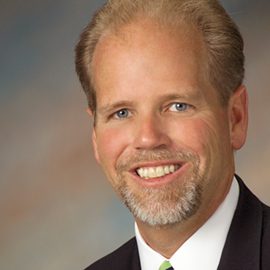
 By Joseph Maguire
By Joseph Maguire
Jan. 17, 2013
Since 1924, my family’s development and real estate investment company has held that with property rights come responsibilities - the first of which is to be proper steward of the land. Four generations of adherence to, and profit from, this maxim demonstrates sustainability is good business.
Now more than ever, tenants, employees and supporting organizations want to work and reside in environmentally sustainable facilities. Businesses are seeing the benefits as they integrate sustainable initiatives and infrastructure into their buildings, ranging from basic recycling and public transportation programs to robust operating structures like advanced HVAC systems and green roofs. The triple bottom line (societal, financial and environmental) benefits of green buildings are the new sensibility. Beyond financial benefits, these sustainable practices have proven to positively impact employee morale, community and company engagement and differentiation from the competition.
As president of the Society of Environmentally Responsible Facilities (SERF), I have a unique perspective on trends that are driving the industry, including more options in green building certification, promoting sustainability efforts within an organization and continuing to advance environmental stewardship.
The United States Green Building Council (USGBC) and its Leadership in Energy and Environmental Design (LEED) certifications have paved the way for wide-scale acceptance and implementation of best practices in sustainable construction and operation. For certification to be credible, it needs to maintain independent, third-party verification. Yet attaining LEED certification can be a daunting experience requiring significant capital. The LEED registration and certification costs for non-USGBC members are estimated to be approximately $22,500. These costs are subject to change based on building size and complexity, and additional costs are added to secure the required approval by third party LEED AP-certified consultants.
In the absence of finding a suitable alternative to LEED certification, like-minded real estate professionals formed SERF in 2010. While SERF certification costs currently ranges from $4,000-12,000 based on building type and location - well below the cost of LEED – the key differentiators expands past the cost savings. The process is more streamlined, accessible and efficient. In fact, SERF allows business leaders to be hands-on during the certification process to ensure the building fits the needs of its residents, staff and employees.
SERF has been helping business reach their sustainability goals in a more efficient manner with the average end-to-end timeframe to complete SERF certification is 1-3 months compared with 18-24 months for LEED certification. Also, contrary to popular belief, green buildings are not limited to massive office structures anymore. Certifications are available for facilities ranging from office, office suites, hospital and healthcare facilities, retail/commercial, multi-family residential, educational, manufacturing and industrial. Beyond the cost and time-savings, SERF works with its certification partners to raise awareness for the certification and the owners’ commitment to sustainable operations.
SERF is also is building on the concept of environmental stewardship through offering an accreditation course for industry professionals to earn the designation of SERF Professional (SP). Interested professionals undergo rigorous training and testing by the Centre for Sustainability & Excellence and are independent of SERF. This accreditation program, like others in the industry, provides the tools for real estate professional to evaluate a building based on specific certification credentials, which in turn will help to cultivate, identify and recognize more sustainably focused facilities.
But you don’t have to take my word for it, business leaders have seen the benefits of more flexible, affordable, streamlined certification. For example, Susan Hammer, general manager for 330 N. Wabash, an iconic Chicago building, pursued and attained SERF certification for the building. She expressed that the process was simple and accessible to almost all facilities or buildings. She added that this respected certification provides tangible recognition of sustainable programs a building or tenant already has in place without the expense and time commitment of other certifications. SERF provides immediate validation for corporate responsibility compliance.
The overall acceptance of the importance of environmentally friendly structures is undeniable across all business sectors, but in the years to come, the green building industry will continue to see more streamlined approaches to certification (comparable to what SERF offers) and professional designation programs/endorsements that allow more real estate professionals to promote green buildings.
Joseph Maguire is president of the Chicago-based Society of Environmentally Responsible Facilities (SERF) and of Wolverine Development Corp. in East Lansing, Mich. He holds the SFP designation from IFMA and MS from the Columbia University Graduate School of Architecture, Planning & Preservation. You can reach him at [email protected].








